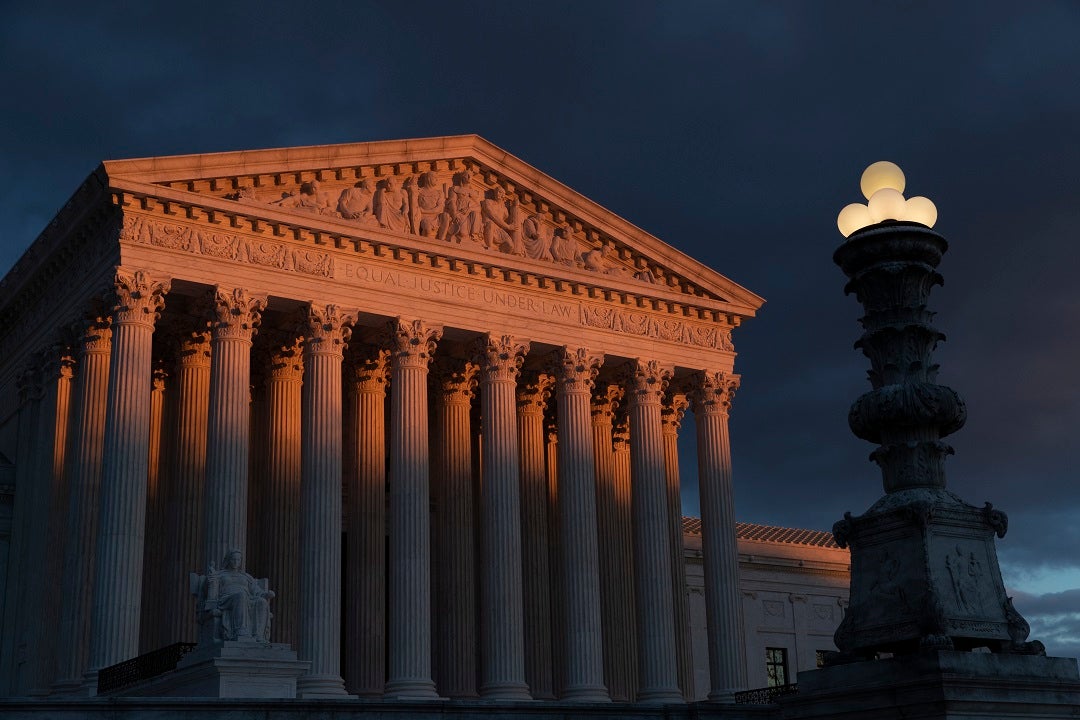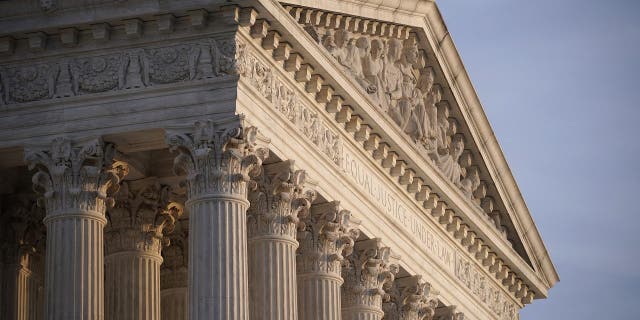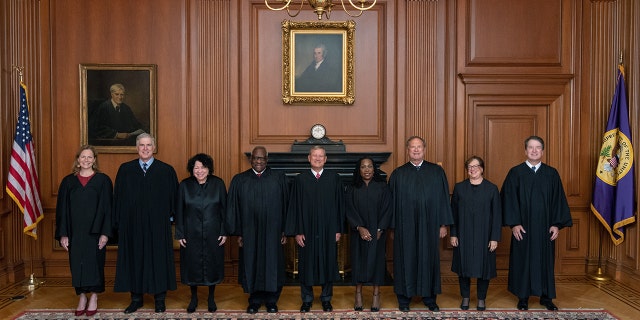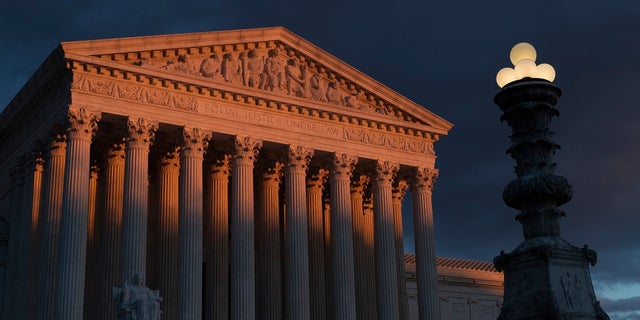Five big cases the Supreme Court will hear over the next four weeks

The Supreme Court returns next week to hear oral arguments on issues ranging from the regulation of Big Tech to President Biden’s student loan handout to the Jack Daniel’s trademark.
The case involving the famous whiskey brand, which will be heard on March 22, involves a battle that pits First Amendment rights against trademark protections. The case arises from a lawsuit brought by Jack Daniel’s against VIP Products LLC for marketing and selling spoof dog toys that look like the famous whiskey bottle.
A lower court found that VIP’s use of the Jack Daniel’s trademark to sell their satire dog toys was likely to confuse consumers, infringed Jack Daniel’s marks and tarnished the Jack Daniel’s reputation. But the Ninth Circuit held that VIP’s First Amendment interest in using Jack Daniel’s trademarks as its own marks on funny dog toys should give it protection from infringement claims.
GEORGIA DEMOCRAT SHREDDED FOR SMEARING JUSTICE THOMAS AS AN ‘UNCLE TOM:’ ‘DISGUSTING’

The Supreme Court of the United States. (AP Photo/J. Scott Applewhite, FileY)
SUPREME COURT DROPS TITLE 42 CASE FROM CALENDAR AFTER BIDEN ADMIN ARGUES CASE IS ‘MOOT’
The case has implications for other large companies that weighed in on the fight, like Patagonia, Levi Strauss, Nike and Campbell’s Soup – all of which asked the court to side with Jack Daniel’s.
“The cost to develop meaningful trademarks is enormous and requires decades of investment and effort to establish a public audience worthy of a parody,” Levi’s amicus brief said. “Trademark owners, of course, should be able to take a joke but not at the cost of their own source identifiers or the public’s understanding of their speech. The Court should remedy the Ninth Circuit’s errors.”
The Supreme Court will also hear two high-profile Big Tech cases dealing with social media companies’ liability for content posted by third-party providers.
At issue in one case is the scope of legal protections created in a nearly 30-year-old federal law and whether they apply to the algorithms that digital service providers like Google and Twitter use to recommend what videos and websites to show their users. Those two companies were separately sued by the families of terrorist victims. Oral arguments will be held over two days next week.

The nine Supreme Court justices. (Collection of the Supreme Court of the United States via Getty Images.)
The second Big Tech case to be argued before the Supreme Court deals with liability under Section 2333 of the Anti-Terrorism Act and whether hosting terrorist content online could constitute “aiding and abetting” under federal civil law, regardless of liability protections for those companies under Section 230.
The case was brought by American relatives of Jordanian citizen Nawras Alassaf, who was among the 39 people killed during a 2017 mass shooting inside an Istanbul nightclub. Three social media companies, including Twitter, were sued for civil damages after the family claimed that the companies had provided a messaging platform for the gunman, who allegedly had been recruited and directed by ISIS to carry out the attack.
Later this month, the nine justices will also decide on two expedited appeals over the Biden administration’s effort to provide debt relief to student-loan borrowers affected by the COVID-19 pandemic. One case involves coalition of six states that say they would be unfairly burdened if the program were to go into effect, and the other was brought by two borrowers who say the administration failed to follow proper procedures after they were unfairly excluded from the full scope of program.

The Supreme Court of the United States.
The president’s decision to provide student loan relief relied on the Higher Education Relief Opportunities for Students Act of 2003 (HEROES Act), a law passed in the wake of the Sept. 11 attacks that allows the federal government to make changes to student-loan programs to respond to national emergencies.
CLICK HERE TO GET THE FOX NEWS APP
The program could affect 40 million Americans, offering up to $20,000 of debt relief to millions of qualified Pell Grant borrowers, but remains on hold until the outcome of the litigation.
Fox News’ Shannon Bream contributed to this report.
Share this news on your Fb,Twitter and Whatsapp
Times News Network:Latest News Headlines
Times News Network||Health||New York||USA News||Technology||World News